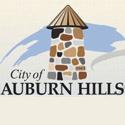 The U.S. Department of Energy (DOE) has announced that the City of Auburn Hills, a dynamic community committed to innovation and growth, has been named a partner in the Workplace Charging Challenge. The announcement was made by DOE’s Assistant Secretary, David Danielson, during his keynote speech at the Electric Drive Transportation Association Annual Conference in Washington, D.C.
The U.S. Department of Energy (DOE) has announced that the City of Auburn Hills, a dynamic community committed to innovation and growth, has been named a partner in the Workplace Charging Challenge. The announcement was made by DOE’s Assistant Secretary, David Danielson, during his keynote speech at the Electric Drive Transportation Association Annual Conference in Washington, D.C.
The Workplace Charging Challenge is a collaboration between the DOE and American innovators to accelerate the development and commercialization of the next generation of plug-in electric vehicles (PEVs) and charging infrastructure with the goal of increasing the number of American employers offering workplace charging by tenfold in the next five years. The Workplace Charging Challenge was implemented in response to President Obama’s March 2012 announcement of the EV Everywhere Grand Challenge, aimed at “enabling the United States to be the first in the world to produce plug-in electric vehicles that are as affordable and convenient for the average American family as today’s gasoline-powered vehicles within the next 10 years.” Auburn Hills was invited by the DOE to become a partner in the Workplace Charging Challenge based on the city’s leadership in promoting PEV infrastructure readiness both statewide and nationally.
“Over two years ago, Auburn Hills made an intentional decision to prepare for the fueling needs of plug-in electric vehicle drivers,” said Steve Cohen, director of community development for the city of Auburn Hills. “With the support of the Ann Arbor-based Clean Energy Coalition, our example has become a model for Michigan, which in turn has made us a national player on the topic.”
In 2011, Auburn Hills became the first municipality in Michigan to adopt a comprehensive Electric Vehicle Infrastructure Ordinance. The City’s ordinance encourages, but does not require, developers, builders, homeowners and business owners to make electric car charging stations a regular part of construction. Since then, Auburn Hills has continued its electric vehicle leadership by testing demo plug-in hybrid gas/electric vehicles for Chrysler Group LLC, working with DTE Energy to secure a grant and install three public PEV charging stations in Downtown Auburn Hills, creating a “best practices” standard for on-street charging stations and developing the State of Michigan’s standard for PEV charging station regulatory signs, which is currently under consideration as the national standard in PEV signage by the Department of Transportation.
“As the home of Chrysler Group LLC, numerous auto suppliers and the huge footprint the auto industry has in our community, we have a common interest in supporting this emerging industry via unified public-private collaboration,” said Cohen.
According to the DOE, Auburn Hills and other Workplace Charging Challenge partners understand PEVs offer consumers significant advantages over gasoline-powered vehicles, including added convenience from home refueling, reduced maintenance costs and savings on fuel (electricity is the equivalent of approximately $1 per gallon of gas). In addition to the consumer cost effectiveness and savings, employer-provided PEV charging stations serve as an attractive employee benefit, enhance corporate sustainability efforts and signal corporate leadership in adopting advanced technology. It also fills an important gap in America’s PEV charging infrastructure, increasing consumer exposure and access to PEV charging opportunities.
“Experts believe these vehicles will constitute only 4 to 10% of the market by 2020 so it will be a long road toward mass adoption,” said Cohen. “However, the next step for us as a city is to continue to be leaders and facilitators in PEV adoption. Being a Workplace Charging Challenge partner provides us that opportunity.”
Partners of the Workplace Charging Challenge make a commitment to provide PEV charging access to their workforce by assessing employee demand for PEV workplace charging, and developing and executing a plan to provide PEV charging access. In return, partners will be provided with technical assistance, informational resources and a forum to share information on PEV leadership facilitated by the DOE. Additionally, successes made and best practices developed will be disseminated nationally.
Auburn Hills joins 3M, AVL, Bentley Systems, Biogen Idec, Bloomberg LP, Chrysler Group LLC, the City of Sacramento, The Coca-Cola Company, Dell, Duke Energy, Eli Lilly and Company, Facebook, Ford, GE, GM, Google, The Hartford, The Hertz Corporation, National Grid, New York Power Authority, Nissan, NRG Energy, OSRAM SYLVANIA, Raytheon Company, San Diego Gas & Electric, Siemens, Southern California Edison, Tesla and Verizon as partners in the Workplace Charging Challenge.
Source:City of Auburn Hills



